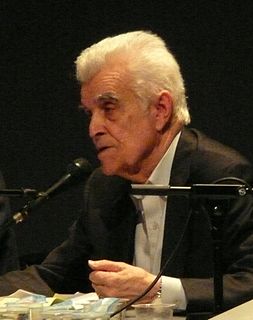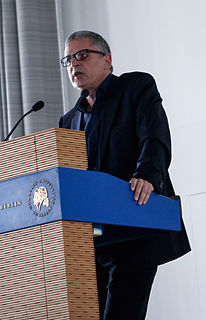A Quote by Rene Girard
I am fundamentally an anthropologist and a rationalist. What I say is that human societies are very different from what specialists call 'animal society' because the former have religion.
Related Quotes
We believe we're seeing, in other animals, a process, or an attribute, that isn't fundamentally different from what we see in humans, so it seems to us to be spurious to call them different things. Now there are aspects of human culture that we don't find in animals, and that's really interesting, but there are also probably aspects of animal cultures that we don't find in humans, and that's really interesting.
We see that there are two different kinds of...societies: (a) parasitic societies and (b) producing societies. The former are those which live from hunting, fishing, or merely gleaning. By their economic activities they do not increase, but rather decrease, the amount of wealth in the world. The second kind of societies, producing societies, live by agricultural and pastoral activities. By these activities they seek to increase the amount of wealth in the world.
Bearing in mind that "the market" is not an invention of capitalism but that it has existed for thousands of years in many different societies, social justice logically requires that the profits resulting from the operation of markets and infrastructures created by society be equitably shared within societies and in a larger context within the human family.
I'm not criticizing how people experience what they might call spirituality. I am interested in looking critically at something else - at how people use their language to articulate theories about something they call religion, to say, for example, that "in Islam religion and politics necessarily go together," or to insist that "violence has no place in religion," to universalize it.








































